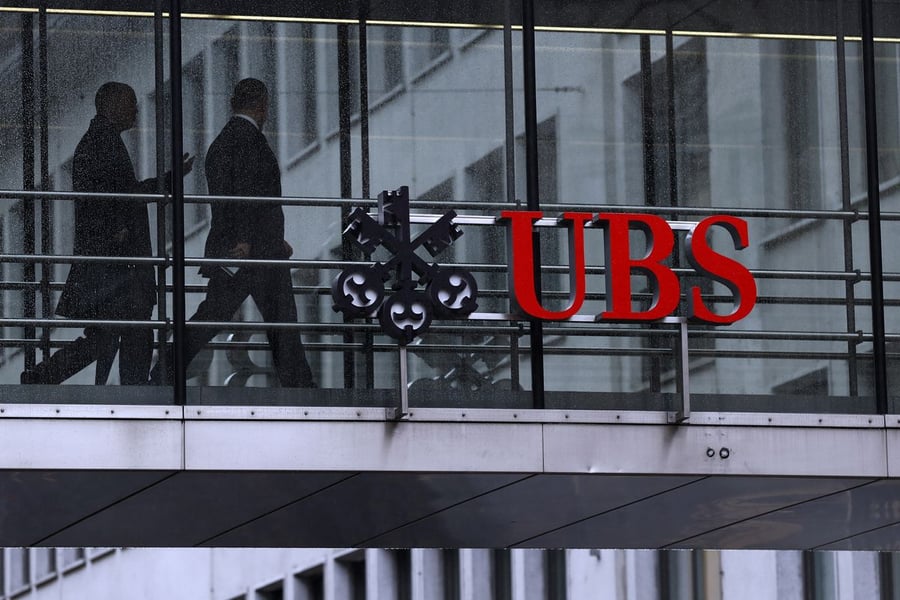

New bank capital rules recently put forward by Switzerland may crimp UBS Group AG’s ability to carry out share buybacks, weakening the firm’s appeal for investors, according to KBW analysts.
UBS faces additional capital needs of $17 billion if the sweeping changes were to be adopted, KBW analysts Thomas Hallett and Andrew Stimpson wrote in a note Friday. “Simplistically,” that requirement would translate into a reduction of $1.7 billion in annual payouts over a 10-year period and it would also be a drag on profitability, they said.
That risk “is clearly unhelpful for a stock already trading at a significant premium to the rest of the sector in the next few years,” they said.
Earlier this month, the Swiss government unveiled regulatory proposals that could see UBS get hit with around $20 billion in extra capital requirements, Bloomberg has reported. The rules are designed to make the country’s banking sector safer after the collapse of Credit Suisse last year pushed it to the brink of a systemic crisis.
Several other analysts have also taken a dimmer view on UBS’s stock as a result of the Swiss proposals. Citigroup Inc and BNP Paribas Exane have cut their recommendations while five other brokers have reduced their price targets, according to data tracked by Bloomberg.
UBS is the second-worst performer this year to date in the Bloomberg Europe Banks and Financial Services Index, which has 46 members.
The lender has pushed back against the proposals, with Chairman Colm Kelleher saying earlier this week that they are the “wrong remedy.” The bank argues that Credit Suisse wasn’t brought down by a lack of capital but by a broken business model.
The KBW analysts said in the note on Friday that UBS could still take actions to lower the capital impact. In addition, regulators may choose to offer concessions such as long phase-in periods to cushion the new rules, they said.
Copyright Bloomberg News

With a fifth of RIA firms using AI to create marketing content, one leading voice argues a clear identity and focusing on clients will be crucial to success.

LPL Financial is a bellwether for the broader financial advice marketplace.

The San Francisco-based startup's Series A funding, with support from Schwab and Edward Jones Ventures, will reinforce its role in the coming $124 trillion wealth transfer.

The quartet of deals across New York, Florida, Ohio, and New Mexico reinforces the fast-growing integrator's leading position in the independent space.

UBS and Wells Fargo have made their own additions in the Northeast, including a Massachusetts duo defecting from Commonwealth.
Orion's Tom Wilson on delivering coordinated, high-touch service in a world where returns alone no longer set you apart.
Barely a decade old, registered index-linked annuities have quickly surged in popularity, thanks to their unique blend of protection and growth potential—an appealing option for investors looking to chart a steadier course through today's choppy market waters, says Myles Lambert, Brighthouse Financial.
